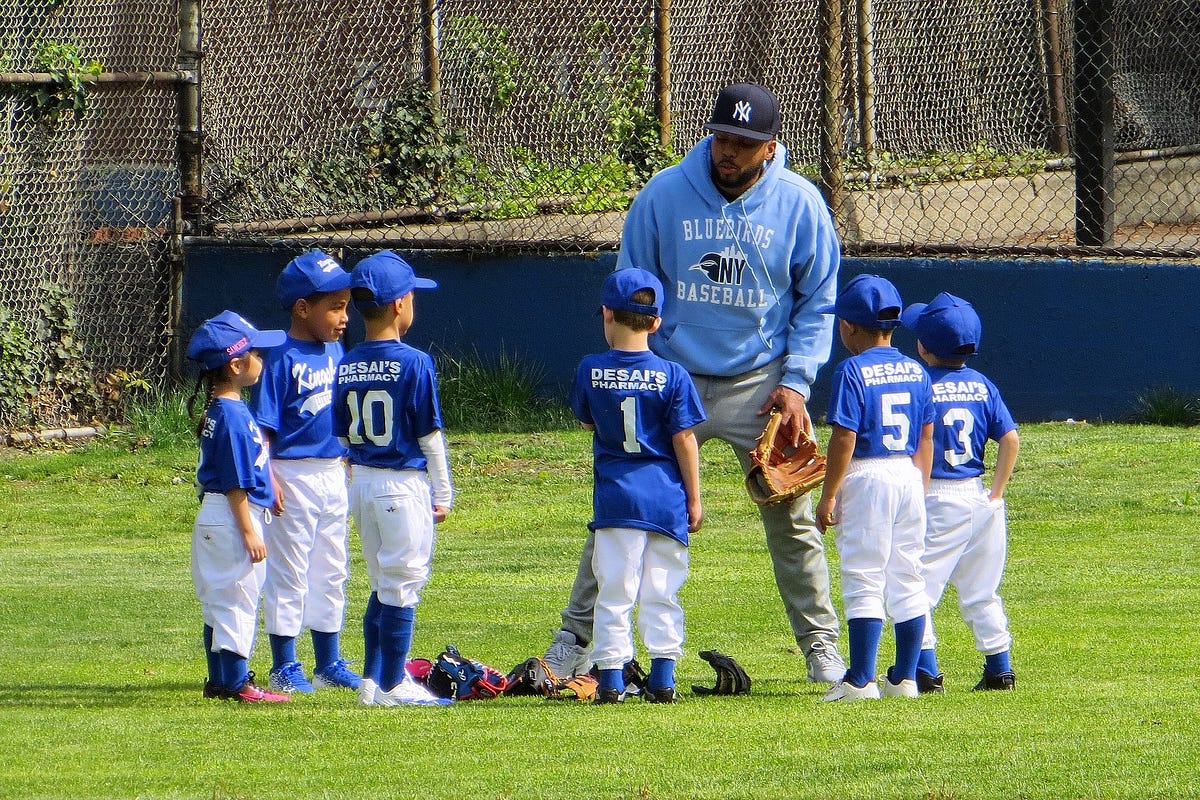Why Youth Sports Programs Are Essential for Children’s Growth
Sports are far more than just games or competition. For children, they are powerful tools for shaping personality, confidence, and social interaction. When kids join structured youth sports programs, they step into environments where teamwork, discipline, and resilience are taught naturally. These qualities not only help them perform on the field but also prepare them for life’s bigger challenges.
Organizations like Youth Rescue Project design community-driven sports activities that prioritize both fun and growth. Instead of focusing solely on winning, these programs encourage kids to push boundaries, set goals, and learn from every experience. The combination of mentorship, structured guidance, and supportive peer groups ensures children develop a strong foundation for personal and social success.
Studies from the American Academy of Pediatrics highlight that kids who participate in organized sports are less likely to face mental health struggles and more likely to succeed academically. Simply put, sports fuel holistic growth.
Local Sports Leagues: Building Community and Belonging
For many children, local leagues are their first taste of organized teamwork and structured play. These leagues do more than just teach rules of the game—they help kids feel like they are part of something larger.
The Role of Local Leagues in Social Development
When kids step onto a team, they learn how to cooperate, communicate, and share responsibility. Teammates celebrate wins together and learn to process losses as a group, fostering emotional intelligence and resilience. These experiences give kids valuable practice in managing relationships, handling conflicts, and respecting different perspectives.
Accessible Opportunities for Families
One of the greatest strengths of youth sports programs is accessibility. Local leagues often run out of community centers, parks, or schools, making them affordable and approachable for families. Parents don’t need to invest in expensive private clubs for their children to benefit—programs like those offered by Youth Rescue Project ensure kids from all backgrounds have equal access.
Fun Activities That Keep Kids Motivated and Active
Sports programs aren’t just about competition. Recreational activities and skill-based challenges keep children engaged while also promoting healthy lifestyles.
Why Variety Matters in Youth Sports Programs
Not every child connects with the same sport. Some may thrive in basketball or soccer, while others feel more drawn to swimming, martial arts, or dance. Offering a variety of options ensures every child finds an activity that excites them. The Youth Rescue Project curates programs designed to appeal to different personalities and skill levels, so every child feels valued and included.
Encouraging Lifelong Fitness Habits
By making sports fun and accessible, children are more likely to embrace physical activity as part of daily life. Kids who develop positive feelings toward exercise are much more likely to maintain healthy habits into adulthood. Programs that focus on fun over pressure reduce burnout and create a mindset where movement feels rewarding instead of mandatory.
Mentorship: Guiding Kids Toward Leadership and Confidence
Mentorship is often the most underrated benefit of youth sports. Coaches and mentors are more than instructors, they become role models who teach kids how to handle challenges, stay motivated, and grow in confidence.
The Importance of Positive Role Models
Having supportive mentors helps kids feel seen and encouraged. Coaches who celebrate effort and growth alongside achievement inspire children to keep trying, even when things get tough. The Youth Rescue Project prioritizes training coaches not just in sports techniques, but also in emotional support and character-building, ensuring kids receive guidance that lasts long after practice ends.
Developing Leadership Skills Through Sports
Opportunities like serving as a team captain or peer leader allow kids to practice leadership early in life. They learn how to encourage teammates, make decisions under pressure, and set an example for others. These skills naturally translate into school projects, future careers, and community involvement.
Emotional and Mental Health Benefits of Youth Sports
The connection between physical activity and mental health is undeniable. Regular participation in youth sports is proven to reduce stress, anxiety, and even the risk of depression.
Stress Relief and Mental Resilience
Exercise releases endorphins—chemicals in the brain that reduce stress and boost mood. Kids who participate in sports develop stronger coping mechanisms and tend to bounce back from challenges faster. In fact, studies show that children active in sports are 25% less likely to experience symptoms of depression.
Building Confidence and Self-Worth
Every skill learned and milestone achieved, whether scoring a goal or mastering a new drill, boosts self-confidence. Programs like those at Youth Rescue Project celebrate effort, persistence, and growth, making children feel proud of their progress. This mindset helps them see setbacks as learning opportunities rather than failures.
Teamwork and Social Skills Kids Carry Into Adulthood
One of the most important lifelong benefits of youth sports is the ability to work well with others. From school group projects to professional environments, the teamwork and communication skills learned on the field carry forward.
Conflict Resolution and Communication
Sports often bring disagreements, whether it’s about strategy or game calls. Instead of avoiding conflict, kids learn to resolve issues respectfully, compromise, and communicate effectively. These are invaluable skills they will use in friendships, academics, and careers.
The Lasting Impact of Team Sports
Research confirms that children who grow up playing team sports are more likely to succeed in professional environments where collaboration is key. They’re also more engaged in their communities as adults, contributing to stronger, healthier societies.
Inclusivity in Youth Sports Programs
Modern youth sports are moving toward inclusivity, ensuring every child—regardless of ability or personality—can participate.
Adaptive Sports for Kids with Different Abilities
Adaptive programs are designed so that children with physical or developmental challenges can enjoy sports too. These initiatives remove barriers and give every child the chance to feel the joy of belonging.
Programs Designed for All Personalities
Some children thrive in competitive settings, while others prefer a recreational, low-pressure environment. By offering both, organizations like Youth Rescue Project ensure no child feels left behind.
Parents’ Role in Supporting Youth Sports Participation
Parents play a crucial role in making sports a positive experience.
Encouragement Without Pressure
Children need encouragement but not pressure. When parents emphasize enjoyment and growth over performance, kids feel more motivated and confident.
Building Strong Family Bonds Through Sports
Sports often become shared family experiences. Attending games, practicing together at home, or watching matches as a family creates bonds that extend beyond the field. These moments build memories and stronger family connections.
Youth Rescue Project: Creating Opportunities for Every Child
At the heart of this movement is the Youth Rescue Project, dedicated to empowering kids through structured sports, mentorship, and community support.
Our Mission to Nurture Lifelong Skills
The Youth Rescue Project mission goes beyond teaching sports. It’s about instilling leadership, confidence, and resilience in children, preparing them for success in all areas of life.
How We Partner With Communities
By collaborating with schools, local organizations, and families, Youth Rescue Project makes sports accessible to all children. The focus is on inclusivity, mentorship, and creating safe environments where every child can thrive.
Preparing Kids for the Future Through Sports Programs
Youth sports are stepping stones toward lifelong success. The discipline of practice, the resilience of bouncing back after losses, and the teamwork of shared goals all contribute to shaping tomorrow’s leaders.
Final Thoughts: Building Tomorrow’s Leaders Through Youth Sports
Youth sports programs are more than just games. They’re opportunities for kids to grow into confident, resilient, and socially responsible individuals. Whether it’s through local leagues, fun activities, or mentorship, these programs plant the seeds of lifelong success and well-being.
By working with organizations like the Youth Rescue Project, families give children the chance to stay active, build character, and prepare for brighter futures.

